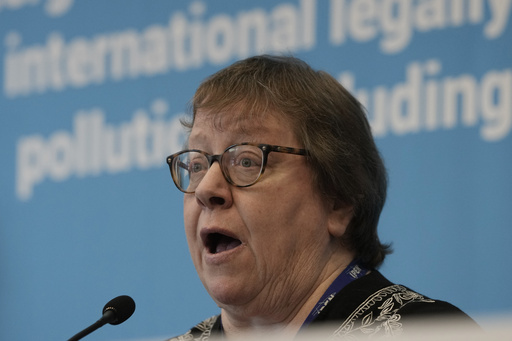
**BUSAN, South Korea** — Negotiators engaged in discussions for a global treaty aimed at combating the severe issue of plastic pollution have made significant progress, with an increasing number of nations expressing their intention to tackle the total volume of plastic present on Earth.
The primary point of contention in these negotiations involves the potential imposition of limits on how much plastic companies can produce. Panama introduced a suggestion for the treaty addressing plastic production on Thursday.
Juan Carlos Monterrey, leader of Panama’s delegation, described this suggestion as a compromise meant to foster agreement, explicitly stating that it does not set a numerical goal or production cap. Instead, the proposal indicates that countries would establish a global target during a future conference involving the parties involved.
Support for Panama’s initiative swiftly grew, with over 100 nations backing the idea. However, opposition remains strong from countries involved in plastic production as well as those in the oil and gas sectors, notably Saudi Arabia, which firmly rejects including such production limits in the treaty, deeming it a non-negotiable matter. Meanwhile, the Russian delegation has emphasized that if the global community is genuinely committed to this treaty, discussions must focus on provisions that all parties can accept.
On Friday afternoon, Luis Vayas Valdivieso, the committee chair from Ecuador, released a document that summarized the treaty text, reflecting insights shared by negotiators throughout the week. Included in the draft is Panama’s proposal regarding production, with the alternative being to remove that section entirely.
“This is fantastic! This is fantastic!” Monterrey exclaimed upon reviewing the newly issued document on his cellphone. He highlighted that the growing support represents a significant demonstration of strength and ambition among countries involved, suggesting that reaching a consensus is still achievable.
According to the Organization for Economic Cooperation and Development, without significant policy adjustments, global plastic production is projected to soar to 736 million tons by 2040, which would mark a 70% increase from 2020 levels.
On Friday morning, environmental groups rallied outside the convention center, holding up signs to urge negotiators to act decisively. The discussions began on Monday in Busan, where delegates divided into smaller groups to examine potential treaty articles. By midweek, no agreements had been reached, with extensive deliberations focusing on areas with some consensus, such as improving plastic waste management. Critical elements of the treaty, including its scope and definitions, remained unsettled.
Valdivieso informed the delegates on Wednesday evening that progress was lagging and that they needed to accelerate the pace of their negotiations significantly.
The delegations will now review Valdivieso’s document and decide on the proposed articles, with the meeting scheduled to conclude late Sunday or early Monday. U.N. Environment Program Executive Director Inger Andersen expressed optimism, stating there is still sufficient time to reach an agreement if all parties commit to focused efforts.
